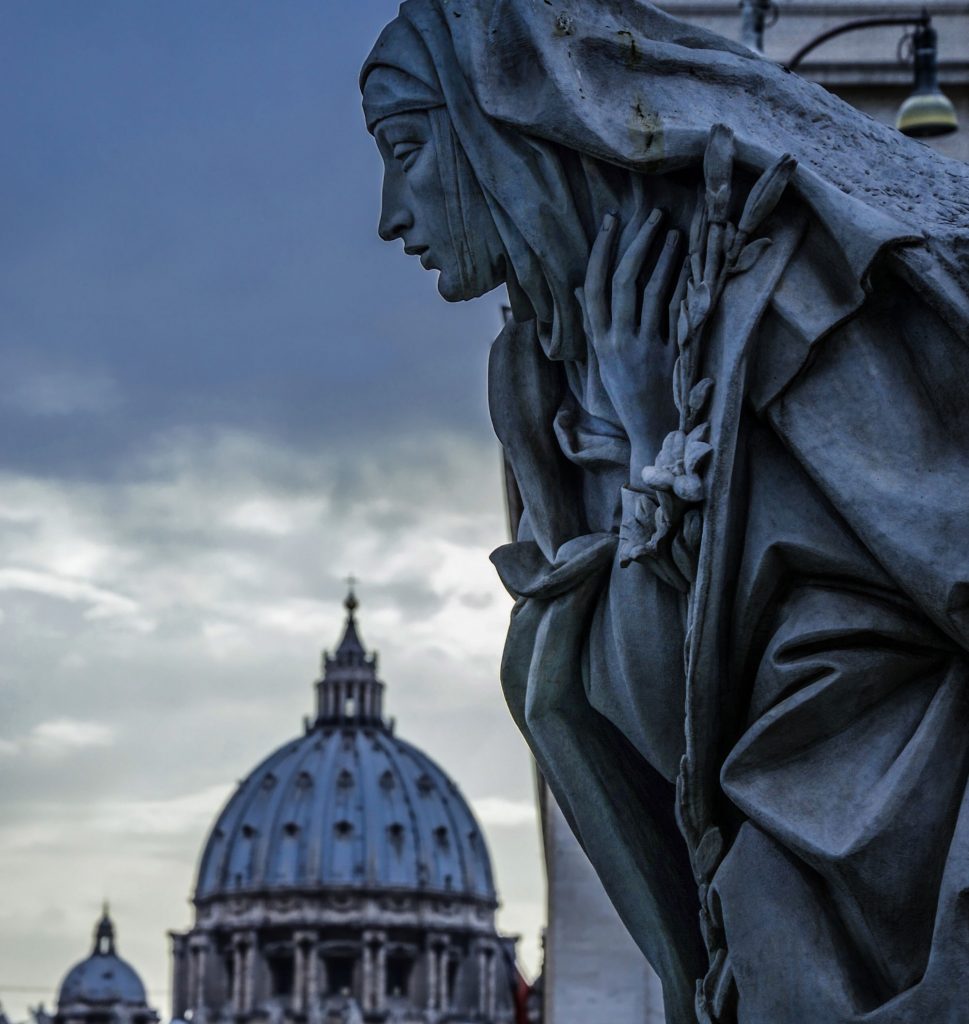An interview with Mike Aquilina on his book “A History of the Church in 100 Objects”
Kathryn Jean Lopez: Why write a book about “things”? Isn’t faith about things unseen? Aren’t we supposed to be selling all our things and following him?
Mike Aquilina: Yes and no. “The Word became flesh and dwelt among us.” Jesus wrote in dirt — real dirt in a particular place. He got himself baptized in water at the Jordan. He broke bread and took wine and declared these things to be his memorial.
The apostles went about anointing people, and the people went around healing people with the apostles’ handkerchiefs (Acts 19:12).
Catholic Christianity has always been a religion of profound theology, but also stuff, some of it unusual and some of it quite ordinary: ashes and incense, relics and candles — you get the idea.
Lopez: What is it about the first apostles and martyrs that could help show us the way today?
Aquilina: Everything. They lived in a deeply divided society, and they managed to establish a unifying principle and Church on earth. They faced insurmountable obstacles — like persecution to the death, a lack of money and no access to media — and they overcame them anyway.
They had nothing going in their favor, except the truth and the grace of God, and that’s all they needed. It’s all we need.
Lopez: You write about a thing — the wedding ring. Why?
Aquilina: Christianity brought about a revolution in the relationship between the sexes. Marriage, in the Greco-Roman world, was largely a transaction. As an institution, it was breaking down.
Caesar Augustus, in the first century, foresaw the looming societal and demographic crises, and he tried to legislate fidelity and fertility. His project was a colossal failure, as were the attempts of his successors.
Christian marriage came along and accomplished what emperors and senators failed to bring about: a revolution of love. Christian marriages, then as now, are not perfect, but they’re tending to perfection. Christian sexual morality actually does make for happier homes and happier lives.
Christian marriage was considered not a mere transaction, but a sacred bond, a sacrament, and that fact is visible on the wedding ring we use as an illustration.
Lopez: What’s so special about the St. Catherine of Siena monument in Rome?
Aquilina: One of the things I love best about the Catholic faith is the leading role played by women in its history. These saints didn’t whine because they couldn’t be ordained. They changed the world instead.
People who claim that the Church “keeps women down” know nothing about history. They need to encounter women like Catherine, who’s so strongly portrayed on that monument. They need to learn about Perpetua, Agnes of Rome, Macrina, Monica, Teresa, Thérèse and Dorothy Day.
They need to meet my mother, who wielded more influence in my childhood parish than anybody else, male or female. They need to meet my wife — and my daughter Grace.
Lopez: Why did you include the birth control pill?
Aquilina: The Church was right about sex when everybody else went wrong. We’re discovering that the hard way. The problem is that so many people are so complicit by now, and that makes it hard to move forward. We need to repent of our mistakes, abuses, pride and stupidity, but that’s no easy thing to do.
Look at the scandals rocking Washington and Hollywood. We’re slowly coming to realize that we have no coherent sexual ethic. By giving ourselves up to pleasure we’ve sown nothing but pain, and now want all the pain to stop.
We hate the world we’ve made by divorcing sex from humanity’s customs of reverence. But we’re all complicit in so many ways, and we can’t bring ourselves to recognize that. The Pill belongs in this book, because this may be the Church’s most important battle today.
Lopez: Do you have a favorite object?
Aquilina: My favorite was the bookshelves of St. Ignatius of Loyola. He was an adventurer, a womanizer, a prideful man. And then he got horrifically injured by a cannonball — and further injured by medical care. The man of action found himself confined to bed, incapable of any action whatsoever.
All he could do was read, and all that his sister had to read was popular Catholic books. They weren’t heady, literary or theological masterpieces, just the stuff of popular devotion. Well, those books proved to be the occasion of his conversion. Those bookshelves give me hope that my books might do some good.
Related reading: Matter matters: A history of the Church in 100 Catholic things
Kathryn Jean Lopez is a senior fellow at the National Review Institute, editor-at-large of National Review and a contributor to Angelus.

